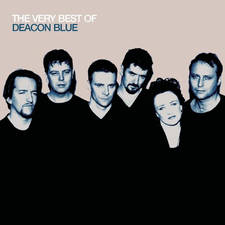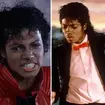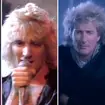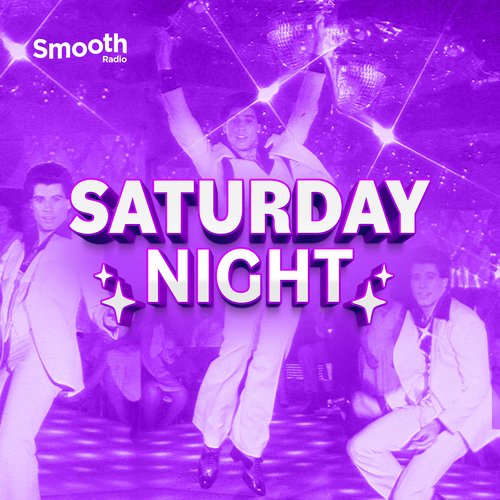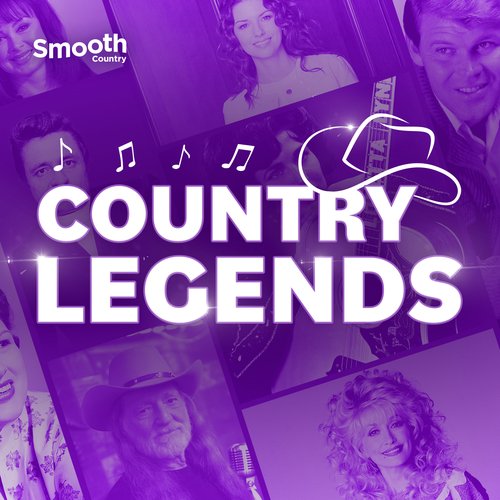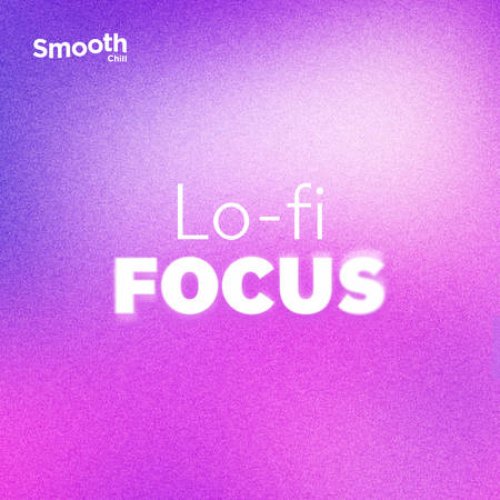U2's 20 greatest songs, ranked
18 September 2023, 17:09 | Updated: 31 January 2024, 16:38
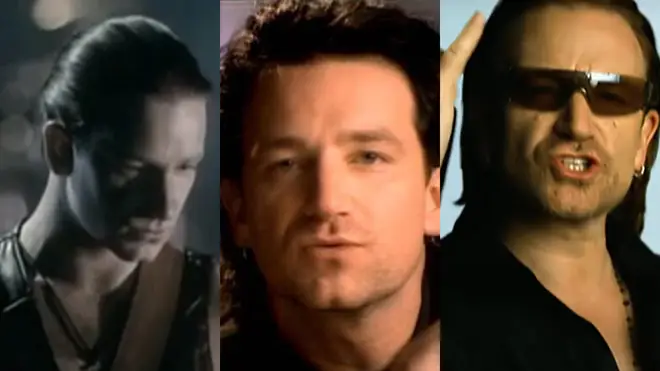
U2 are one of the most influential and successful rock bands of all time. With a career spanning more than four decades, the Irish quartet has produced 14 studio albums and sold over 170 million records worldwide.
Listen to this article
Their music is known for its anthemic sound, social and political themes, and the distinctive vocals of lead singer Bono. But which songs are the best examples of U2’s artistry and legacy?
Whether you are a die-hard fan or a casual listener, you will find something to enjoy and appreciate in this list of U2’s best songs.
-
All I Want is You

U2 - All I Want Is You (Official Music Video)
U2's song 'All I Want is You' is a powerful expression of love and longing, but also of the challenges and contradictions that come with it. The song was written by Bono for his wife Ali, who he married in 1982, and it reflects his doubts and fears about being a good husband and father.
He sings from her perspective, telling him that she loves him unconditionally, even with his flaws and failures. She does not need any material possessions or promises, only his presence and commitment.
The song is the last track on the album Rattle and Hum, which was released in 1988, and it features a string arrangement by Van Dyke Parks.
The music video for the song, directed by Meiert Avis, is a tribute to the Italian filmmaker Federico Fellini and his movie La Strada. It tells the story of a dwarf who works in a circus and falls in love with a trapeze artist, but their relationship ends tragically.
-
Elevation

U2 - Elevation (Official Music Video)
U2's song 'Elevation' is a playful and energetic track that celebrates the power of love and desire to lift one's spirit and transcend the mundane. The song uses various metaphors and imagery to convey the idea of being elevated by someone, such as being shot from a gun, flying in the sky, or being a star.
The song also references the band's own musical journey, as they seek to elevate their soul and their art through experimentation and innovation.
The song was released as the third single from their album All That You Can't Leave Behind in 2001, and it won a Grammy for Best Rock Performance by a Duo or Group with Vocal.
The song was also featured in the movie Tomb Raider, starring Angelina Jolie, and the music video showed a humorous battle between a good and an evil version of U2.
-
Sometimes You Can't Make It On Your Own

U2 - Sometimes You Can't Make It On Your Own (Single Take Version)
One of U2's most personal and emotional songs is 'Sometimes You Can't Make it On Your Own', which was released in 2005 as the second single from their album How to Dismantle an Atomic Bomb.
The song is a tribute to the lead singer Bono's father, Bob Hewson, who died of cancer in 2001. Bono sang the song for the first time at his father's funeral, and it reflects on their tense relationship until just before his death, when they became closer than ever before.
The song explores themes of vulnerability, the complexities of relationships, and the need for support. The lyrics convey a sense of struggle and frustration, as well as a deep emotional connection between individuals.
Bono addresses his father directly, admitting that they were not always on the same page, but also expressing his love and gratitude for him. He acknowledges that his father was a tough and cynical man, but also a great source of inspiration for him.
-
Mysterious Ways

U2 - Mysterious Ways (Official Music Video)
U2's song 'Mysterious Ways' is a song that explores the relationship between men and women, and the spiritual dimension of love. The song was inspired by a conversation that Bono had with a reverend about the feminine aspect of God.
The song uses the metaphor of the moon to represent a woman who guides and transforms a man who is living in fear and isolation. The song also suggests that love is a divine gift that can help one transcend the mundane and reach for the sky.
The song is not about a specific woman, but rather a celebration of the power and mystery of women in general. The song was recorded in Berlin, where U2 faced creative difficulties and almost broke up. The song helped them break through their creative block and led to the creation of another hit, 'One'.
The song was released as the second single from their album Achtung Baby in 1991, and became a worldwide success.
-
Every Breaking Wave

U2 - Every Breaking Wave
U2's song 'Every Breaking Wave' is a poignant exploration of the challenges and risks of love and commitment. The song uses the metaphor of the ocean and its waves to represent the ups and downs of a relationship, as well as the temptation to give up and chase something new.
The song's narrator is a person who is afraid to fully surrender to their partner, and who questions whether they are ready to be swept off their feet by love. The song also reflects on the loss of intimacy and the sense of isolation that can result from avoiding vulnerability.
The song was originally written for U2's previous album, No Line on the Horizon, but was left out at the advice of Coldplay's Chris Martin, who thought it deserved more attention.
The song was later reworked by producer Ryan Tedder, who changed the chorus melody and moved the original one to the bridge. The song was released as the second single from U2's thirteenth studio album, Songs of Innocence, in 2014.
-
The Unforgettable Fire

U2 - The Unforgettable Fire (Official Music Video)
'The Unforgettable Fire' is a haunting and poetic expression of the band's reaction to the atomic bombings of Hiroshima and Nagasaki, as well as a reflection on their own mortality and faith.
The song was inspired by an art exhibition of the same name that featured paintings and drawings by survivors of the nuclear attacks, which U2 visited at the Chicago Peace Museum in 1983.
The song's lyrics evoke images of fire, ice, water, and darkness, contrasting the beauty and horror of human civilization. The song also references the biblical story of Lot, who was told by God to flee from the doomed city of Sodom and not look back.
The song was produced by Brian Eno and Daniel Lanois, who helped U2 experiment with a more ambient and textured sound on their fourth album.
-
Stuck in a Moment You Can't Get Out Of

U2 - Stuck In A Moment You Can't Get Out Of (Official Music Video)
U2's song 'Stuck in a Moment You Can't Get Out Of' is a powerful and emotional song that deals with the theme of suicide. The song was inspired by the death of Bono's close friend Michael Hutchence, the lead singer of INXS, who took his own life in 1997.
Bono wrote the lyrics as an imaginary conversation with Hutchence, trying to persuade him not to give up and to see the bigger picture of life. The song uses a gospel-influenced chord progression and a choral chant at the end, creating a contrast between the despair of the lyrics and the hope of the music.
The song was released as the second single from U2's album All That You Can't Leave Behind in 2001 and won a Grammy Award for Best Pop Performance by a Duo or Group with Vocal in 2002.
-
Electrical Storm

U2 - Electrical Storm (Directors Cut)
'Electrical Storm' was released as a single from the band’s compilation album, The Best of 1990–2000. The song was written by Bono, and produced by legendary music producer William Orbit.
The song is about the tension and conflict in a romantic relationship, which is compared to an impending electrical storm. Bono said that the song captures a sense of unease he felt around the world, especially in America, after the 9/11 attacks.
It features two different versions: the band version and the William Orbit mix. The band version is more rock-oriented and has a louder intro, while the William Orbit mix is more atmospheric and has a quieter intro. The William Orbit mix was the one that appeared on the compilation album and the music video.
The music video for the song was directed by Anton Corbijn and starred drummer Larry Mullen Jr and actress Samantha Morton. The video shows them as lovers in a seaside hotel during a stormy night.
-
Sunday Bloody Sunday

Sunday Bloody Sunday (Live From Red Rocks Amphitheatre, Colorado, USA / 1983 / Remaste...
'Sunday Bloody Sunday' is a powerful protest anthem that expresses the horror and frustration of witnessing the violence and bloodshed in Northern Ireland, especially the 1972 Bloody Sunday incident in Derry where British soldiers killed 14 unarmed civil rights protesters.
The song is not a partisan or rebellious song, but rather a plea for peace and justice in the name of Christ. The lyrics are sung from the perspective of a young man in the Republic of Ireland who is shocked and disgusted by the sectarian hatred that divides his fellow countrymen.
The song also references other historical events, such as the Easter Rising of 1916 and the Great Famine of 1845-1852, to show the long history of suffering and oppression in Ireland.
The song is one of U2's most famous and influential songs, and has been covered by many artists. It is also one of their most performed songs in live concerts, where they often use it to address current political and social issues around the world.
-
Desire

U2 - Desire (Official Music Video)
U2's song 'Desire' is a rock song that expresses the band's ambition and dedication to be successful musicians. It also criticizes the American preachers who exploit their followers for money and fame.
The song features the "Bo Diddley beat", a rhythm popularized by the blues musician Bo Diddley. The song was influenced by The Stooges' song '1969' and other American forms of music that U2 explored in their album Rattle and Hum.
The song was U2's first number-one single in the UK and Australia, and it won the Grammy for Best Rock Performance by Duo or Group in 1989. The song also reflects Bono's awareness of the similarities and differences between his role as a rock star and a religious leader.
-
New Year's Day

U2 - New Year's Day (Official Music Video)
'New Year's Day is a classic rock anthem that combines elements of love and politics. The song was inspired by the Polish Solidarity movement, which was a non-violent campaign for democracy and workers' rights in communist Poland in the early 1980s.
The song's lyrics express the hope and determination of the people who joined the movement, as well as the personal bond between the singer and his lover, who vows to stay with him through the turmoil.
The song was released as the lead single from U2's third album, War, in 1983. It was the band's first international hit, reaching the top 10 in the UK and several other countries.
It also marked a musical shift for U2, who incorporated more keyboards and synthesizers into their sound, influenced by the new wave genre. The song's distinctive bassline was created by Adam Clayton, who was trying to play along with a Visage song during a soundcheck.
-
Vertigo

U2 - Vertigo (Official Music Video)
U2's song 'Vertigo' is a rock anthem that expresses the feeling of being overwhelmed by the modern world and its temptations. The song uses the metaphor of vertigo, a sensation of dizziness and disorientation, to describe the state of mind of Bono, who is caught between his desires and his conscience.
The song also reflects U2's musical evolution, as they experimented with different sounds and styles in their 11th album, How To Dismantle An Atomic Bomb.
The song begins with a count-in in Spanish, "Uno, dos, tres, catorce," which means "One, two, three, fourteen." This is a reference to both the album's number and the biblical verse Exodus 3:14, where God reveals his name to Moses as "I am who I am."
It then describes various aspects of the modern culture that Bono feels trapped in, such as music, dance, drugs, and consumerism.
It was a number one for the band in the UK when it was released in 2004.
-
Beautiful Day

U2 - Beautiful Day (Official Music Video)
U2's song 'Beautiful Day' is a celebration of life and hope in the face of adversity and loss. The song was released in 2000 as the lead single from their tenth studio album, All That You Can't Leave Behind, and became one of their most successful and acclaimed hits.
The song was inspired by a chord sequence that Bono composed and that the Edge adapted, and it features a blend of rock, pop, and electronic elements. The song also reflects the band's return to their roots after experimenting with different musical styles in the 1990s.
The lyrics of 'Beautiful Day' are optimistic and uplifting, as they describe a person who has lost everything but still finds joy in the beauty of the world. The song encourages the listener to appreciate the simple things in life, such as nature, love, and faith, and to overcome the challenges and obstacles that they face.
The song was well received by critics and fans alike, and it won three Grammy Awards in 2001: Song of the Year, Record of the Year, and Best Rock Performance by a Duo or Group with Vocal.
-
Sweetest Thing

U2 - Sweetest Thing (Official Music Video)
U2's song 'Sweetest Thing' is a romantic and playful song that Bono wrote as an apology to his wife, Ali Hewson, for forgetting her birthday. The song was originally released as a B-side on the 'Where the Streets Have No Name' single in 1987, but it was re-recorded and re-released as a single in 1998 for the band's compilation album The Best of 1980–1990.
The lyrics of 'Sweetest Thing' are humorous and self-deprecating, as they describe Bono's attempts to make up for his mistake and to express his love for his wife. The song references some of the things that Bono did for Ali, such as buying her flowers, writing her a song, and taking her to Paris.
The music video for 'Sweetest Thing' is a visual representation of the song's theme and tone. It shows Bono riding in a horse-drawn carriage with Ali, while various performers and celebrities try to entertain and impress her. The video features appearances by Boyzone, Steve Collins, Riverdance, the Artane Boys Band, and the Celtic Knights.
-
Hold Me, Thrill Me, Kiss Me, Kill Me

Hold Me, Thrill Me, Kiss Me, Kill Me (From 'Batman Forever')
'Hold Me, Thrill Me, Kiss Me, Kill Me' is a rock anthem that explores the themes of fame, identity, and sexuality. The song was originally written during the sessions for the band's 1993 album Zooropa, but was later released as a single for the soundtrack of the film Batman Forever starring Val Kilmer in 1995.
The song's title is a play on the classic song 'Hold Me, Thrill Me, Kiss Me' and also refers to the "little death", a euphemism for orgasm.
The song is sung from the perspective of Bono's alter ego, the Fly, a parody of himself and a rock star persona he adopted during the Zoo TV Tour. The song reflects the Fly's inner conflict between his desire for fame and his fear of losing himself in the process.
The song also draws parallels between the Fly and the Joker, the villain of the Batman film, who are both obsessed with chaos and spectacle.
-
Where the Streets Have No Name

U2 - Where The Streets Have No Name (Official Music Video)
'Where the Streets Have No Name' is a rock anthem that expresses the desire to escape from the social and political divisions that plague the world. The song was inspired by Bono's visit to Ethiopia in 1985, where he witnessed the poverty and suffering of the people.
He also learned that in Belfast, Northern Ireland, one could tell a person's religion and income by the street they lived on. Bono wanted to write a song about a place where such distinctions did not matter, where people could be free and united.
The song was very difficult to record, as it had a complex arrangement with two time signature shifts and frequent chord changes. The band rehearsed it many times, but could not get a satisfactory performance. Producer Brian Eno even considered erasing the tape and starting over, but was stopped by his assistant.
The song was released as the third single from The Joshua Tree album in 1987, and became a commercial and critical success.
-
One

U2 - One (Official Music Video)
U2's song 'One' is a complex and ambiguous song that explores the themes of unity and division, love and conflict, identity and difference.
The song was written in 1991, when the band was facing a creative crisis and was on the verge of breaking up. The song was also inspired by the historical events of that time, such as the fall of the Berlin Wall and the AIDS epidemic.
Bono said: "It is a song about coming together, but it's not the old hippie idea of 'Let's all live together.' It is, in fact, the opposite. It's saying, We are one, but we're not the same. It's not saying we even want to get along, but that we have to get along together in this world if it is to survive. It's a reminder that we have no choice"
-
Pride (In the Name of Love)

U2 - Pride (In The Name Of Love) (Official Music Video)
U2's song 'Pride (In the Name of Love)' is a tribute to the American civil rights leader Martin Luther King Jr, who was assassinated on April 4, 1968. The song was inspired by a biography of King that lead singer Bono read, and it reflects on the different aspects of the non-violent movement that King led.
The song also acknowledges the irony of using the word 'pride' to describe a humble and selfless man who gave his life for a noble cause.
The song was released as the lead single from U2's 1984 album The Unforgettable Fire, and features a distinctive guitar riff by the Edge, and a powerful vocal performance by Bono, who later expressed some dissatisfaction with the lyrics, saying that they were too vague and impressionistic.
-
I Still Haven't Found What I'm Looking For

U2 - I Still Haven't Found What I'm Looking For (Official Music Video)
U2's song 'I Still Haven't Found What I'm Looking For' is a classic rock anthem that expresses the spiritual quest of the band's lead singer Bono. The song was released as the second single from their 1987 album The Joshua Tree, which was influenced by their fascination with American music and culture.
The song features a distinctive drum pattern by Larry Mullen Jr., a chiming guitar riff by the Edge, and gospel-inspired backing vocals by the Edge, Brian Eno, and Daniel Lanois.
The lyrics describe Bono's search for meaning and transcendence in a world of suffering and injustice. He sings about his experiences of love, faith, doubt, and temptation, but concludes that he has not yet found what he is looking for.
The song was a critical and commercial success, reaching number one on the US Billboard Hot 100 and number six on the UK Singles Chart.
-
With or Without You

U2 - With Or Without You (Official Music Video)
'With or Without You' is a rock ballad that expresses the dilemma of a man who is torn between his love for a woman and his passion for music. The song was inspired by Bono's own struggle to balance his family life and his career as a rock star.
The song was released in 1987 as the lead single from U2's fifth studio album, The Joshua Tree. It was the first U2 song to reach number one on the Billboard Hot 100 chart in the US, and also topped the charts in Canada and Ireland.
The song is considered one of U2's most iconic and influential songs, as it showcases their distinctive sound and style. The song features a haunting guitar riff by The Edge, a powerful vocal performance by Bono, and a minimalist production by Brian Eno and Daniel Lanois.
